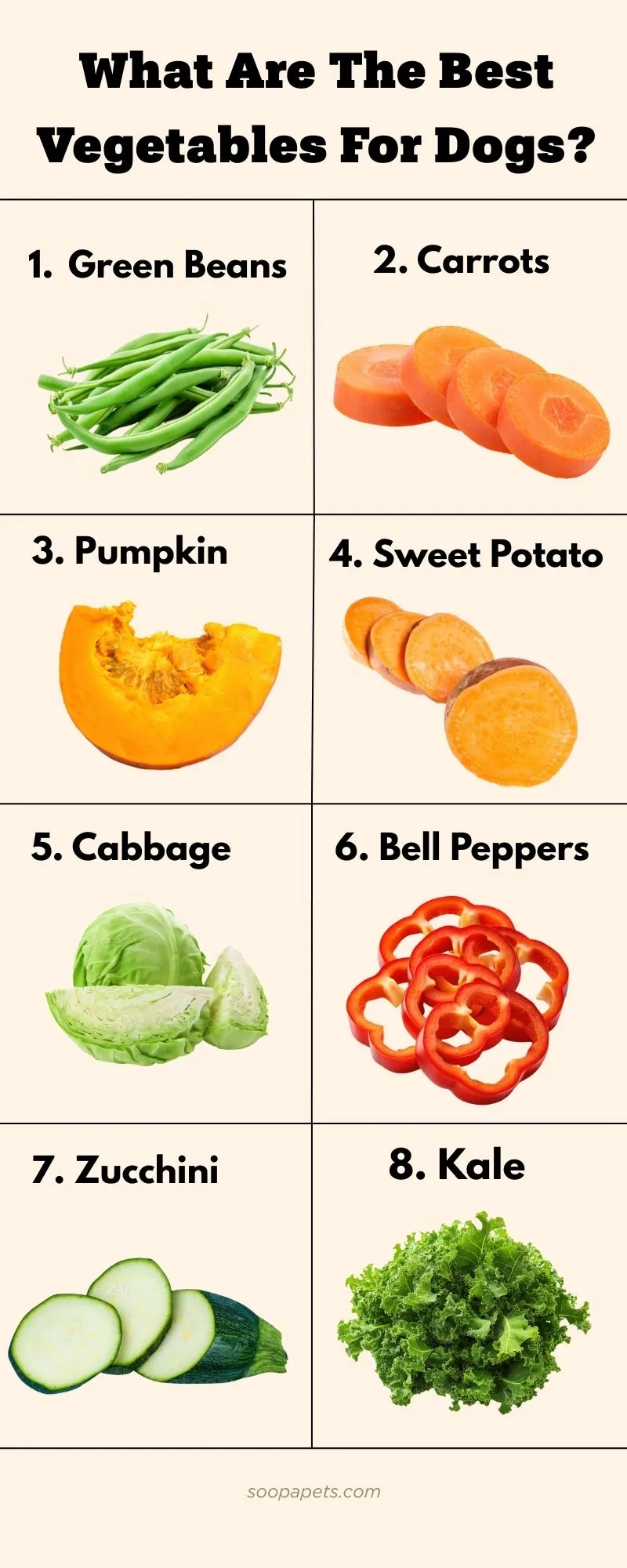When your canine companion is diagnosed with kidney disease, managing their diet becomes a paramount concern for their well-being and comfort. While specialized veterinary diets are often the cornerstone of treatment, incorporating certain vegetables can significantly support their overall health and aid in managing the condition. The key lies in selecting vegetables that are low in phosphorus, sodium, and potassium, while being rich in beneficial nutrients and fiber. This article will delve into the best vegetables for dogs with kidney disease, highlighting those to embrace and those to carefully avoid, along with practical preparation tips to ensure your furry friend receives the maximum benefit.
Understanding the Role of Vegetables in a Kidney-Friendly Diet
Dogs suffering from kidney disease face challenges in excreting waste products, particularly phosphorus, sodium, and protein metabolites. A diet that minimizes these substances while promoting hydration is crucial. Vegetables, when chosen wisely, can be a fantastic addition to a kidney-supportive diet. They are typically low in fat and phosphorus, and many are packed with essential vitamins, minerals, and fiber, all of which contribute to a healthier canine system and can help alleviate the burden on compromised kidneys. It’s vital to consult with your veterinarian before making any significant dietary changes, as they can provide tailored advice based on your dog’s specific condition and needs.
 A dog happily eating a piece of vegetable
A dog happily eating a piece of vegetable
For owners seeking to supplement their dog’s diet with wholesome goodness, understanding what foods are healthy for dogs to eat is a great starting point. However, for dogs with kidney disease, this knowledge needs to be more specific.
Top 8 Vegetables Beneficial for Dogs with Kidney Disease
The following vegetables are generally considered safe and beneficial for dogs with kidney disease due to their favorable nutritional profiles. They are low in phosphorus and sodium and can contribute positively to your dog’s health:
Green Beans: A nutritional powerhouse for dogs with kidney issues, green beans are low in calories and phosphorus, and rich in dietary fiber, which aids in digestion. They can be safely offered steamed or finely chopped.
Carrots: Naturally sweet and appealing to many dogs, carrots are also low in sodium. They can be served raw as a crunchy treat or lightly steamed to make them easier to digest.
Pumpkin: Pureed pumpkin is renowned for its ability to support healthy digestion and can be particularly helpful for dogs experiencing gastrointestinal upset, which can sometimes accompany kidney disease. It is low in phosphorus and a well-tolerated option for many dogs.
Sweet Potato (in moderation): While generally healthy, sweet potatoes contain moderate levels of phosphorus. Therefore, they should be given in small, well-cooked portions as a supplementary treat rather than a staple.
Cabbage: Cabbage is a good source of antioxidants and is notably low in potassium and phosphorus. To improve digestibility and reduce any potential for gas, it’s best to steam cabbage before feeding it to your dog.
Bell Peppers: Especially red bell peppers, these are excellent sources of vitamins A, C, and E, all vital antioxidants. They are nutrient-dense and considered a safe choice for dogs with kidney concerns.
Zucchini: This versatile squash is low in phosphorus and is easily digestible, making it an excellent choice for dogs needing gentle nutrition. Its high water content also contributes to hydration.
Kale: In small quantities, kale offers significant health benefits, providing vitamins A, C, and K, along with calcium and antioxidants. However, due to its nutrient density, it should be fed sparingly.
 A dog looking curiously at a selection of vegetables
A dog looking curiously at a selection of vegetables
Incorporating these vegetables can be part of a broader understanding of what can dogs eat in human food when adapted for specific health needs.
Vegetables to Avoid for Dogs with Kidney Disease
Certain vegetables, while healthy for many dogs, can be detrimental to those with kidney disease due to their high levels of phosphorus, potassium, or oxalates. It is crucial to avoid the following:
- Spinach: Spinach is high in oxalates, which can interfere with calcium absorption and potentially exacerbate kidney issues.
- Beets: Rich in both oxalates and potassium, beets are best excluded from the diet of dogs with kidney disease.
- Tomatoes: The acidity of tomatoes can be hard on sensitive stomachs, and they are also high in potassium, making them a less-than-ideal choice.
- White Potatoes: These are very high in potassium and should generally be avoided. If given, they require soaking to leach out potassium before cooking.
- Rhubarb: Rhubarb is toxic to dogs and poses a significant risk, especially to those with compromised kidney function.
Understanding what are some foods dogs can’t eat is fundamental for any responsible pet owner, and this list is particularly critical for dogs with kidney disease.
Preparing Vegetables Safely for Dogs with Kidney Disease
When introducing or continuing to feed vegetables to a dog with kidney disease, proper preparation is key to maximizing benefits and ensuring safety:
- Cooking Methods: Steaming or boiling vegetables is recommended. This softens the fibers, making them easier to digest and absorb nutrients.
- Portion Size: Cut vegetables into small, manageable pieces, especially for senior dogs or those with dental issues. For dogs who are very picky eaters or have difficulty chewing, mashing the vegetables can be a good alternative.
- Seasoning: It is imperative to avoid adding any salt, butter, oils, or artificial seasonings to your dog’s vegetables. These can further burden the kidneys and may be harmful.
- Gradual Introduction: When introducing new vegetables, do so slowly. Start with small amounts to monitor your dog’s reaction and prevent any potential gastrointestinal upset.
Remember, many vegetables that are suitable for dogs with pancreatitis are also well-tolerated by dogs with kidney disease, as both conditions often benefit from bland, easily digestible foods.
Consider Dog Treats Formulated for Health Support
Beyond fresh vegetables, many commercially available dog treats are formulated with kidney-friendly ingredients. Look for treats made with natural components like pumpkin, carrots, sweet potato, and kale, which can offer digestive support and are generally suitable for dogs with sensitive systems or specific health concerns.
Conclusion
Providing the right vegetables for dogs with kidney disease can significantly contribute to their comfort and long-term health by easing the workload on their kidneys. Prioritizing vegetables like carrots, pumpkin, and green beans, while diligently avoiding those high in oxalates or potassium, is a cornerstone of dietary management. Always consult with your veterinarian to create a personalized diet plan for your dog. By making informed choices and preparing vegetables correctly, you can offer your beloved companion a healthier, more comfortable life.
References:
- The Merck Veterinary Manual. (n.d.). Kidney Disease in Dogs. Retrieved from https://www.merckvetmanual.com/dog-owners/kidney-and-urinary-tract-disorders-of-dogs/kidney-disease-in-dogs
- American Kennel Club. (n.d.). Can My Dog Eat This? Retrieved from https://www.akc.org/expert-advice/nutrition/can-my-dog-eat-this/
